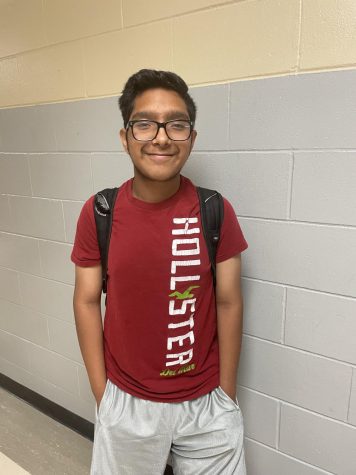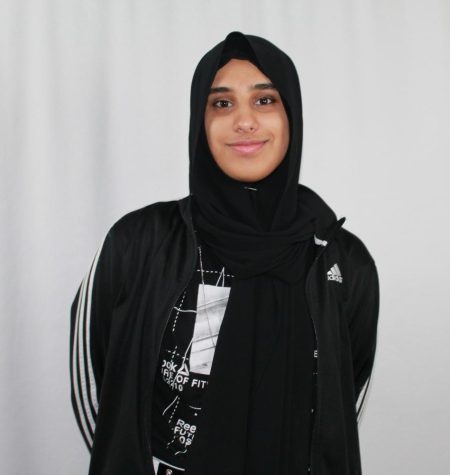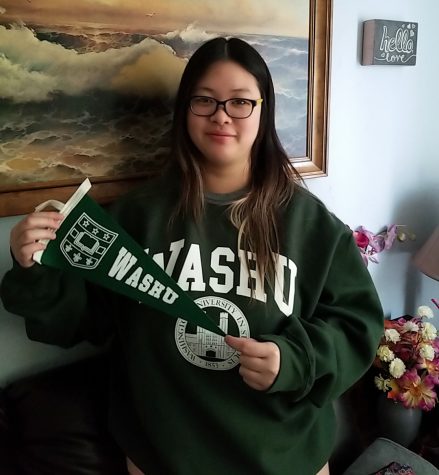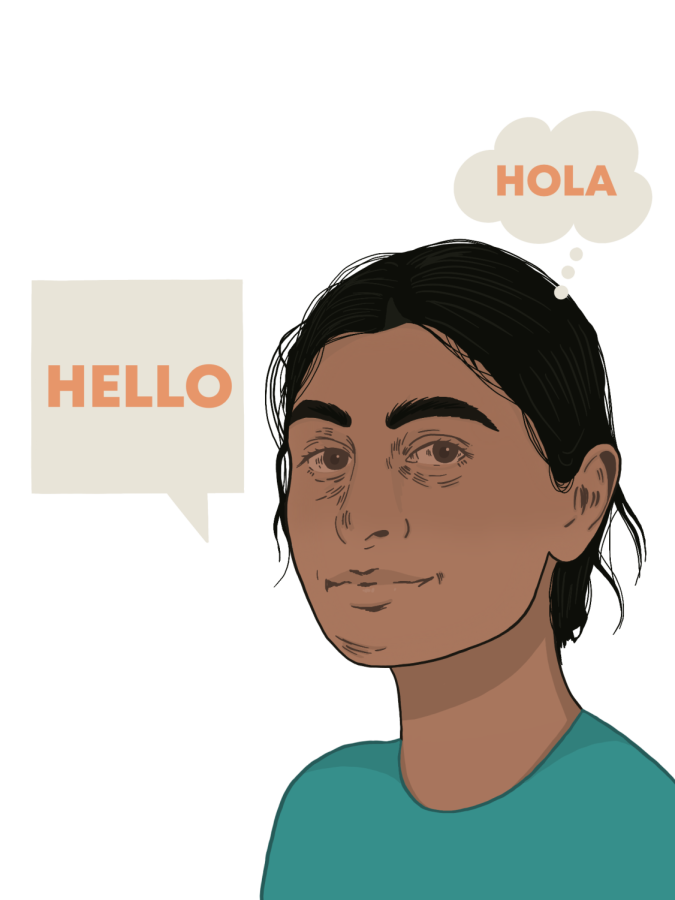Bilingual Brains
Students who speak multiple languages benefit both socially and educationally
May 28, 2023
As you walk down F hall, you can hear Spanish, French and German spilling out of the foreign language classrooms. Many LSE students are currently learning second languages, but some students are working on learning their third or whose second language was English. Students who speak more than one language reap cognitive benefits such as improved multitasking skills, social skills and memory. Multilingualism increases one’s awareness of other cultures and gives a diverse perspective, as well as the ability to connect with a wider range of people.
JOSEPH PEREZ MEZA
Freshman Joseph Perez Meza’s first language is Spanish, as that’s the language his family members speak. He said they speak both Spanish and English but don’t use English as much. “I basically just speak Spanish at home, but English at school or anywhere else,” Perez Meza said.
Perez Meza recalls learning English in preschool and found it easy to learn since he was young. Since he uses English more than his family members, he is more fluent. For him, knowing both languages comes in handy because he can help translate for his family members if needed. He also uses his knowledge if his friends ever want to learn more Spanish.
Some people choose to learn a second language for job opportunities, and Perez Meza sees the value in that. He aspires to learn French for job opportunities and possible future travel plans. He is currently taking French classes in school but hopes to continue to grow his knowledge of the language.
LUCY BESCANSA LUERS
While junior Lucy Bescansa Luers’ native language is English, she’s working to become fluent in Spanish. Bescansa Luers’ dad is from Spain, but she never became fluent in Spanish when she was young. However, she recalls that she has always known some phrases and pronunciations. When learning a new language, environment can be a key factor. Being surrounded by people who speak the language that one is learning can help them to pick up on phrases and pronunciations.
“I know that [learning Spanish] is good for my brain. It helps your thinking and I can connect to more people,” Bescansa Luers said. She continues to improve her knowledge of Spanish by talking with her dad, as well as continuing to take Spanish classes. Next school year, she plans to take AP Spanish.
For her, language is a way to connect to her family and her heritage. “[Being able to speak Spanish] means that I can talk with my family and learn more about my culture,” she said.
This summer, Bescansa Luers and her family are going on a trip to Spain to visit their family that lives there. She has been practicing speaking Spanish with her family at home in preparation for this trip.
When she was younger, she wasn’t able to speak Spanish, which caused her to miss out on connections with some of her family members. “My abuelo died before I ever got to talk to him because I didn’t know Spanish when I was younger,” Bescansa Luers said. She has a desire to learn Spanish because she values being able to get to know her family members.
FATIMA AL-GHANIMI
Similarly to Perez Meza’s learning of Spanish, freshman Fatima Al-Ghanimi learned her native language, Arabic, from her family. She learned English as she reached schooling age, recalling beginning to learn English in preschool. Al-Ghanimi says that she doesn’t remember learning either language and that both were learned as she grew up. Studies show that the most proficient way to learn a new language is to do so before 10 years of age. This allows children’s brains to pick up on a language’s grammatical structure and pronunciation.
Al-Ghanimi says that she speaks more English than Arabic. “I feel like I am neglecting my Arabic side a little more, even though it’s my native language,” she said. Her family members speak both English and Arabic as well. Her dad is a stay-at-home dad, so he doesn’t use English as much as her other family members. Al-Ghanimi’s mom works as a translator for both English to Arabic and Arabic to English.
“My parents were scared of me losing my Arabic, so they’d always give me entertainment in Arabic,” she said.
Al-Ghanimi says that other people who speak Arabic will recognize that she is Middle Eastern in public and go up to her speaking Arabic. People will ask her for directions or help in Arabic, and she likes being able to help these people.
“It feels nice to actually have connections with people, other than speaking English,” Al-Ghanimi said.
TIFFANY HA
Senior Tiffany Ha was born in Vietnam and lived there until she was 12-years-old when her family moved to the US. Although Vietnamese is her native language, she began to learn English as she continued to live in the US.
For Ha, Vietnamese is a way to connect with her family members. She speaks Vietnamese at home with her parents but speaks English at school and in public. Her parents speak Vietnamese most of the time, except for when they are at work, where they speak English.
“I also will be traveling back to my home country, so knowing Vietnamese helps me communicate with my relatives,” Ha said.
In addition to being fluent in Vietnamese and English, Ha is learning Korean.
“I have always been interested in Korean culture, and I love to watch K-dramas when I have free time,” Ha said.
Ha says that it’s harder to learn Korean since she is attempting to self-learn the language, meaning she is learning the language within a community that doesn’t speak Korean. Although it is hard to learn the language without being surrounded by native speakers, Ha says that exposure to Korean culture through the media is improving her speaking and comprehension skills of the language. Ha’s sister is also learning Korean, so she tries to converse with her in Korean.
“One of the times I felt really proud of myself for being able to speak in multiple languages was probably when I understood a Korean reel on Instagram without subtitles,” Ha said.
She plans to minor in Korean and travel to South Korea to study abroad in the future, which is a motivation for her to learn the Korean language.
If Ha happens upon a person in public struggling with English, she is happy to be able to help them if they speak Vietnamese or Korean. Knowing how to speak multiple languages allows for unique connections with a diversity of people.
“One of the biggest benefits that greatly impacted my life of being able to speak multiple languages is definitely getting into my dream university,” she said.
Most colleges look for a diverse body of students. When accepting student applications, speaking multiple languages helps students to stand out from others that applied.
Despite the countless benefits of being multilingual, Ha says that speaking multiple languages has “messed with [her] brain sometimes.” She says that in some instances she’ll struggle to form words because she struggles to differentiate certain words from language to language. However, she says this doesn’t seriously affect her, and being multilingual is worth it.
Being multilingual gives students opportunities to connect with new people, learn new skills and be unique.









